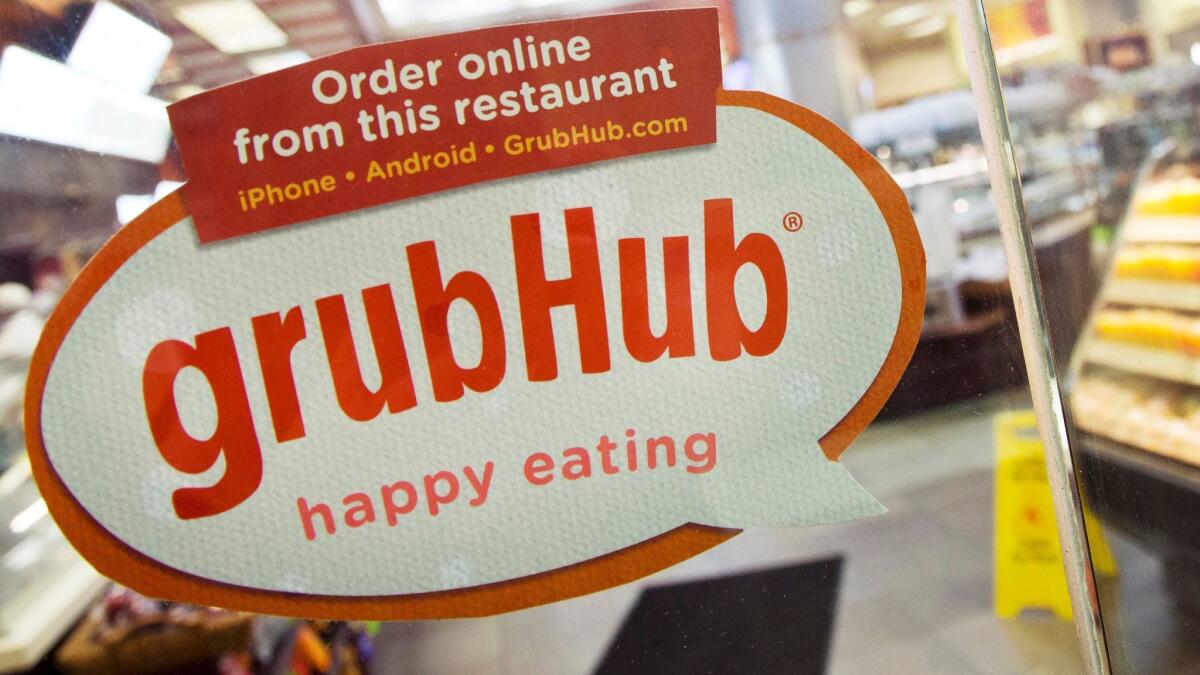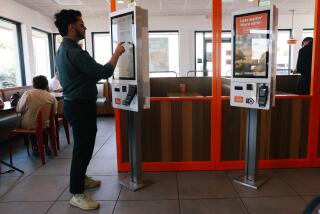News Analysis: Food delivery looks like another gig-economy dead end

As the third-quarter earnings season rolls on, a paradox confronts the restaurant industry. On the one hand, restaurant companies are touting the rise of off-premise and digital sales, which includes delivery, as an increasingly important source of growth. On the other, GrubHub Inc. just announced disappointing quarterly results and said that food delivery is only a means to an end, unlikely to ever be profitable on its own.
The risk heading into 2020 is that the inevitable reckoning for the food-delivery businesses will spread to the broader restaurant industry.
Restaurants have based much of their recent growth on consumer deliveries and rely heavily on just four companies — GrubHub, DoorDash Inc., Postmates Inc. and Uber Eats — which combined have about 95% of the market. That’s what makes GrubHub’s latest quarter so ominous. In a letter to investors, it said it didn’t believe “that a company can generate significant profits on just the logistics component of the business.”
In other words, delivery will always be a low-margin business at best. GrubHub also reported some troubling trends: new customers tend to order fewer deliveries than earlier users; customers are losing their brand loyalty, and are more willing to switch to rival services; and those rival services now tend to offer delivery from a wider range of restaurants than GrubHub.
Three Silicon Valley sharing-economy companies unveiled a measure to exclude many who work for them from being considered benefits-earning employees.
All told, the bottom line was net income of just $1 million versus $22.7 million in the same period a year ago. But GrubHub also made the argument that its value to restaurants lies in its potential as an online advertising partner, and that delivery services are really just a vehicle for generating ad sales.
This should not be reassuring news for DoorDash and Postmates — which have almost half the market for meal delivery — their investors, or their restaurant partners.
If GrubHub, which actually is profitable, says that meal delivery isn’t where the money is, where does that leave DoorDash or Postmates? Both are unprofitable and have a sky-high combined valuation of $15 billion, based on rounds of private investment funding this year. Both now must cope with the long odds of going forward with initial public offerings this year after the botched IPO of WeWork parent We Co. And why would anyone bother putting more money into those unprofitable companies when investors can simply buy shares for much less in GrubHub, which now has a market value of $3 billion?
It doesn’t seem all that far-fetched to imagine these two companies undergoing the same kind of brutal retrenchment that WeWork is facing; reducing advertising spending, cutting coupons and incentives, raising prices and exiting unprofitable markets. Uber Eats, of course, is a slightly different case because it’s part of a much larger operation, theoretically one with more access to capital. Yet it faces similar funding constraints; parent Uber Technologies Inc. is a huge money loser, its shares have declined by almost 30% since the company went public in May and investors are looking for signs of profitability.
Doordash said it would increase base pay for deliveries and that customers’ tips will be added on top of a “Dasher’s” earnings paid by the company.
If the food-delivery services start cutting back, it’s likely to show up in restaurant earnings reports during the next several quarters. Just by way of example: On Tuesday evening in a conference call to discuss its latest quarterly results, Cheesecake Factory Inc. said that off-premise sales now comprise 16% of revenue, with delivery being 35% of that amount, or 5.6% of total sales. The company uses DoorDash for deliveries.
If this relationship is typical, and there’s every reason to think it is, it means restaurants are dependent on companies with a good deal of downside risk, in much the same way that owners of commercial properties are at risk from having WeWork as a major tenant.
For now, GrubHub’s bad news has only hurt its own stock. But to the extent its warning proves prescient, the restaurant industry could be in for a painful 2020.
Sen writes a column for Bloomberg.
More to Read
Inside the business of entertainment
The Wide Shot brings you news, analysis and insights on everything from streaming wars to production — and what it all means for the future.
You may occasionally receive promotional content from the Los Angeles Times.











